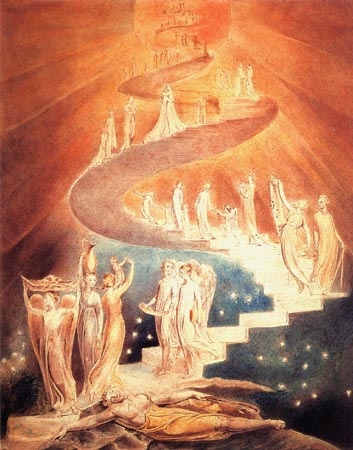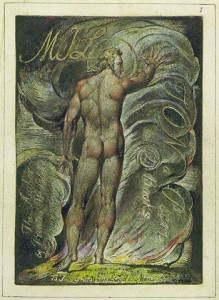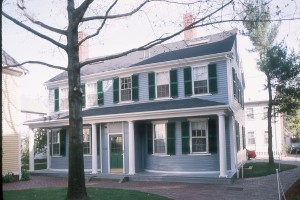
I thought this exchange between Russell Perkin and Bob Denham in the Comments section of Bob’s post on the epiphanies was worth bringing forward for more attention.
Perkin:
Bob, that’s really interesting stuff! Do you have anything to say about the realization about The Four Zoas that John Ayre describes Frye experiencing “while sitting in the bored husband’s seat in a women’s wear shop on Yonge St. just below Bloor” (p. 177)? Does Frye record this anywhere – Ayre doesn’t give a source. It’s not so much a spiritual vision as a realization about how he had to present Fearful Symmetry. What Ayre calls the “absurdly mundane circumstances” fascinate me. Rather like Francis Thompson seeing Jacob’s ladder pitched between “heaven and Charing Cross”?
Denham:
Russell: I’d forgotten about Ayre’s account of the Four Zoas recognition–Los displacing Orc, it seems to have been. It certainly sounds like one of those momentary flashes of insight and similar to the others. So far as I know, Frye doesn’t mention it elsewhere, but it pretty clearly should be added to the list. Perhaps he recorded something about it in his original Blake notebook, which is not extant.
It would be interesting to know that date of this epiphany. Early 1940s, I’d guess. Frye does have a similar account of Orc-Los business in his 1950 diary: “The tactic of the Blake article is shaping up a little. After I outline his archetypal imagery, which derives from the unfallen world, I go on to archetype of narrative. The archetypal narrative is the heroic quest, which is the Orc cycle. This is in Blake, but he’s not primarily interested in it, as he sees the cyclic shape of it too clearly. That’s the reason for the difficulty in trying to wedge Jungian archetypes, which are all narrative ones, into Blake. The shift over from the Orc cycle to the Los pattern of progressive & redemptive work is really the centre of the problem in [L] [Liberal] that converges on what I call the dialectic development of the conception of the hero. In Blake the cycle of narrative emanating from & returning to the unfallen world is seen so constantly as a simultaneous pattern of significance that the reader has to get this perspective before he can read: it isn’t unfolded to him passively in a narrative sequence.” (Diaries, 431).
Thanks for calling attention to the omission. Continue reading

